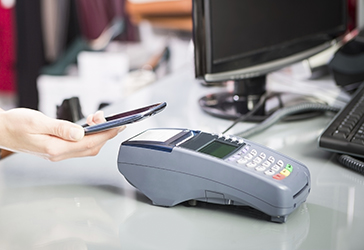
The person on the other end of the phone has exciting news: You've won first place in the sweepstakes. A new car will soon be yours.
The catch? To claim your prize, you have to send a small payment to cover its delivery, maybe $100 or $200.
Be careful. The non-existent sweepstake is one of the most common telephone scams. Once you send in your prize-recovery fee, your money disappears. And that new car you've won? It never shows up.
In this age of the Internet, it's easy to forget that con artists have been using the phone for decades to scam victims out of their money. And if you don't recognize the warning signs of a phone scam, you, too, can fall prey.
Here are some of the more common phone scams and how to recognize them.
For the 'sweepstakes scam' mentioned above, the red flag to watch for is a request for a fee to claim your prize. No legitimate sweepstakes or lottery will ask you to send money upfront to claim the prize. If the person on the other end of the phone asks for a credit card number to verify your identity, immediately hang up. That's another sure sign of the sweepstakes phone scam.
The fake check: Are you advertising an item for sale on Craigslist? Be wary of the fake check phone scam. In this scam, a crook calls to buy your item. The catch? This scammer wants to write you a check for more than the amount of the item. Say you're selling a patio furniture set for $200. The scammer will send you a check for $300, requesting that you deposit the check in your bank and wire the extra $100 back to the scammer. What happens next? Three days later your bank calls: That $300 check is a fake.
The lesson here? Never wire money to someone you don't know, for whatever reason.
Phishing: We all know of phishing scams in the online world. But it can happen by phone, too. A crook will call you claiming to be a representative of your bank, credit-card company or phone company. The caller will ask for a piece of important information, maybe your bank account number or perhaps a PIN. Don't provide this information. The scammer will use it to empty your bank accounts or run up fraudulent purchases with your credit card.
The rule here is a simple one: Never provide account numbers or PINs to someone who calls you on the phone. Your real bank or credit-card company will never ask for this information if they call you; they already have it on file.
Expiring warranty: The expiring warranty is a phone scam that doesn't even require a live caller on the other end of your phone. Instead, an automated message will click on when you answer the phone. The message will tell you that the warranty on your car is about to expire. After the recording ends -- if you haven't hung up -- a live operator comes on the line and requests a payment for a new warranty. If you pay? You'll never receive any paperwork, and you'll never receive a payout should you damage your car.
Avoid falling for this phone scam by demanding that any company selling you a warranty send you the paperwork explaining the policies before you make any payments. Most times, the voice on the other end of the line will disappear, and you'll receive no documents in the mail.
To protect yourself from phone scams, follow certain rules: Never feel pressured to make a quick decision. Always ask for paperwork or documentation before sending money. Never give out your credit card, bank account or Social Security numbers to a telemarketer who has called you. And never pay for what is being touted as a "gift."
For further protection, sign up for the National Do Not Call Registry. Registering should prevent most unwanted calls from reaching you. And if you think that you've fallen for a scam, even if you've already sent money, contact the Federal Trade Commission at 877-FTC-HELP.





